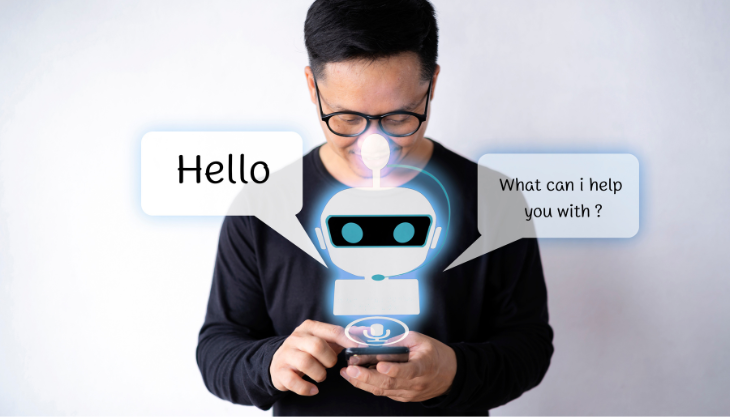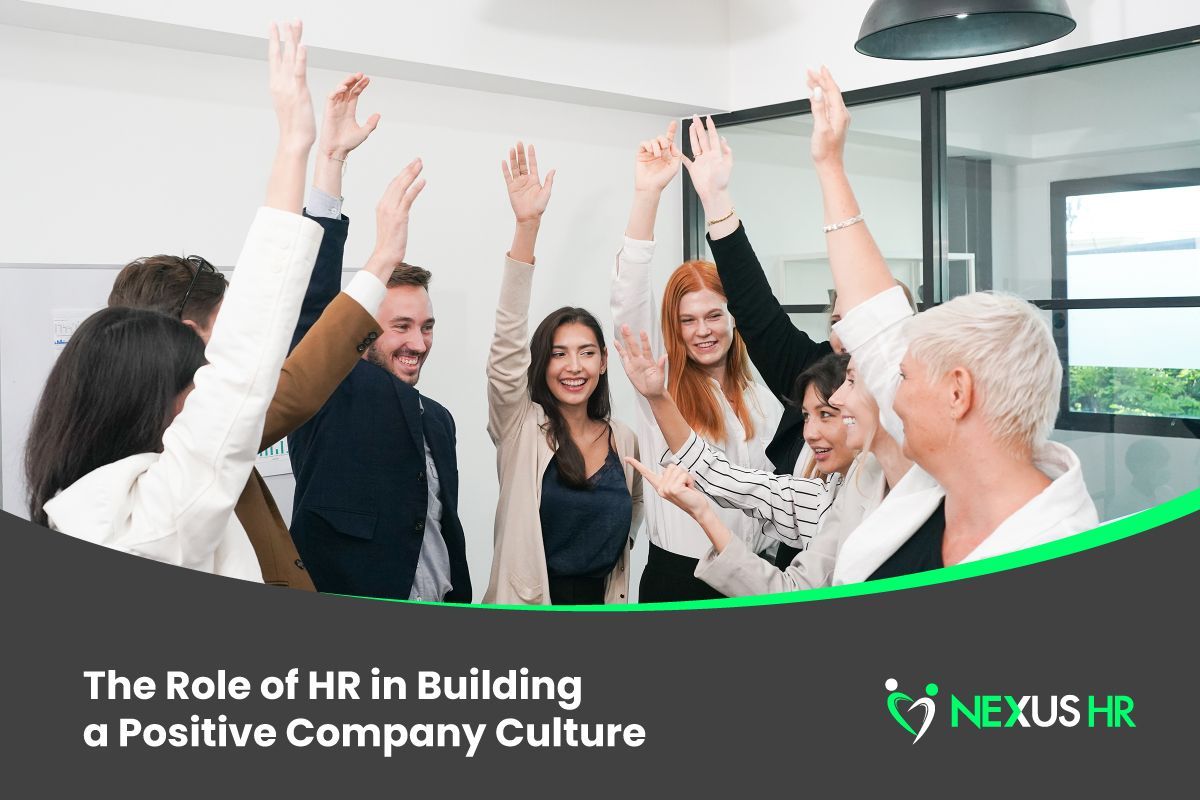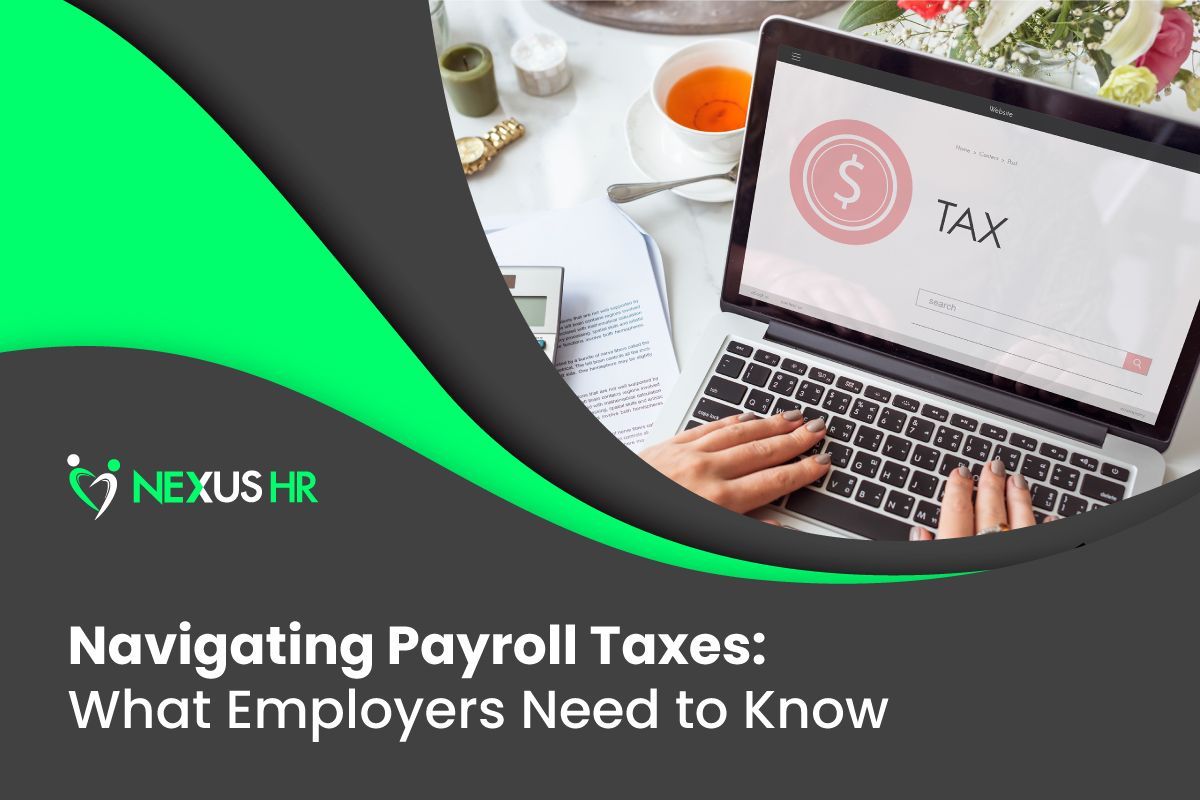How to Prepare Your Team for Generative AI in the Workplace
Generative artificial intelligence (AI) has been a hot topic for months now—not because it’s new, but because it has permeated every aspect of the average American’s life, including the workplace.
While the
Microsoft Work Trend Index report shows 49% of employees worry that AI will replace their jobs,
Slack’s State of Work report
shows that employees adopting generative AI tools are 90% more likely to report higher productivity levels.
With more and more companies integrating tools like ChatGPT, GitHub Copilot, and Synthesia in their workflows, you can’t help but ask yourself: Is it time to leverage generative AI to boost my business? How do I prepare my team for that?
What is Generative AI?

Generative AI refers to a branch of AI that focuses on creating new content, data, or outputs based on the data they were trained and prompted on.
For example, here’s what
ChatGPT generated when asked to describe generative AI to a 15-year-old reader:
Generative AI is a super-smart computer program that can create its own things, just like a creative friend.
It looks at examples of things people have made, like drawings, stories, or music, and learns how they're put together. Then, it uses what it's learned to make brand-new creations that nobody has ever seen before. It's like having an artist friend who can surprise you with their unique artwork, except it's a computer doing all the creating!
People use generative AI in lots of cool ways. Artists use it to get inspiration and make new artwork. Game developers use it to create characters, worlds, and adventures in video games. It's like having a virtual collaborator that can help you bring your ideas to life.
Generative AI opens up a whole new world of creativity and imagination where the possibilities are endless!
Generative AI can be a groundbreaking tool for your business, but it’s not a
turnkey, risk-free solution. It requires meticulous planning, thorough preparation, and careful execution.
Before hopping on to the generative AI bandwagon, company leaders like you need to understand how it can grow your business, what
risks you could face, and what changes you need to make to adopt it.
How is Generative AI Impacting the Workplace?

According to a McKinsey & Company report, generative AI will significantly impact all industry sectors. It is especially transforming industries that rely heavily on data analysis and decision-making.
By analyzing large amounts of data, generative AI can provide valuable insights, make predictions, and assist in making informed business decisions. This helps organizations streamline processes, optimize operations, and identify new opportunities.
Here are some industries that generative AI has already penetrated:
Healthcare
According to a Precedence Research report, the global market for AI in healthcare was an estimated $15.1 billion in 2022. The report expects it to exceed $187.95 billion by 2030.
Healthcare organizations have been using AI to ease extended processes, improve patient care, lower costs, and increase the overall effectiveness of care.
For example, the
University of Kansas Health System rolled out a generative AI app to more than 140 of its locations. The app,
Abridge, captures the audio of a provider-patient conversation, transcribes it, identifies 90% of the key points, and summarizes them to automatically fill out the patient’s medical chart in the clinician’s preferred format.
By leveraging generative AI, the University of Kansas Health System aims to reduce providers' time on documentation, improve the quality and consistency of clinical notes, reduce provider burnout, increase provider retention, and enhance patient care delivery.
Read More:
5 Ways to Increase Employee Retention
Architecture
In 2013, an Oxford University study showed only a 1.8% chance of technology and AI replacing architects. Ten years and many AI milestones later, experts still say it’s unlikely that robots will ever replace a human architect’s role.
However, that’s not to say AI hasn’t transformed how architects work. In fact, an increasing number of architects are leaning on AI technology to help them create design options, analyze them, optimize building performance, and predict how people will use a space.
Maket is one way generative AI is accelerating architectural innovation. Using profound advances in AI, Maket can generate hundreds of floorplan variations based on the prompts, parameters, and constraints you enter. It allows users to collaborate on one platform and provides instant answers on zoning codes, materials, and costs.
By harnessing the power of generative AI, architects can generate schematic designs in minutes instead of months. They can simplify and expedite the architectural process and increase production.
Retail
McKinsey & Company reports that the impact of generative AI on productivity in the retail industry could translate to an additional $400 to $660 billion a year in revenue.
National Retail Federation’s VP of Retail Technology and Cybersecurity
Christian Beckner says generative AI may soon write product descriptions for thousands of products. It could also gather data from social media and automatically design products based on trends; this allows retailers to get new items to market much faster.
Besides marketing and sales content creation, generative AI can also help elevate the customer experience by giving chatbots a more human interaction style, accelerating consumer research, and speeding up content analysis.
When asked about how this would affect employees in the retail industry, International Data Corporation’s VP of Research
Ananda Chakravarty explains that workers will need to adjust to working with data and technology more frequently. They don’t have to be experts but must learn how to interpret and use data.
Organizations looking into adopting generative AI tools need to give their teams the opportunity and space to learn about generative AI and leave no room for tech shame.
Read More:
What is Tech Shame, and How Can Your Company Avoid It?
Dealing With Workers Who Are Anxious About Generative AI

Employees are worried AI will take over the workforce and take away their jobs. And they have every reason to be.
History teaches us that, like all technological advancements preceding it, generative
AI will likely displace job roles. However, history
also
tells us that new technology spurs on creating new jobs, which will offset the displaced ones.
When you decide to integrate generative AI into your operations, there will be anxiety and fear among your team. That’s a normal reaction from employees who value their place in your company.
Handling your employees’ questions and concerns is crucial in seamlessly integrating technology into your business processes. Here are a few things you can do to reassure AI-anxious employees:
Set Expectations and Regularly Evaluate Progress
Dave Wilkin, CEO of talent experience platform 10KC, recommends that employers and company leaders set clear expectations about generative AI functions in their company.
What will and won’t the AI tool do? What tasks can your employees delegate to AI? What are the expected outcomes of incorporating generative AI in your business operations? And are you achieving these outcomes?
“AI should never be used to [make] automated decisions,” said Wilkin. “Rather, it should be used as a tool to help inform decision-making by humans.”
Inform and Educate Your Team
According to a TalentLMS survey, 49% of U.S. employees admit they need training on AI tools. Unfortunately, only 14% say they’re getting it.
If you want your business to experience the full potential of generative AI, your team needs to know its role in your workplace, how to use it properly, what AI data you will collect, and how it will affect each member’s role and responsibilities.
Informing and educating your team helps you smoothen the transition to an AI-assisted workflow, show your employees that you value them, and foster a culture of commitment.
Read More:
Are Your Employees Career Cushioning? Here’s How to Handle It
Upskill and Reskill
According to a Microsoft report, business leaders are more interested in using AI to empower their employees, not to replace them. As a manager, you must reassure your team that generative AI will not replace them…but also be honest enough to tell them a person who knows how to wield it effectively could.
David Blake, CEO of learning platform Degreed, tells employers that with the potential time savings you have after generative AI takes on specific repetitive and time-consuming tasks, your employees may have more capacity to learn new skills or enhance current ones.
“Some workers will feel uneasy with the growing list of things that AI can do,” said Blake. “Doubling down on upskilling and reskilling them will help put their minds at ease while preparing them for the opportunities that AI will offer.”
Read More:
What is Reverse Mentoring, and Should My Company Do It?
Foster a Culture of Innovation and Growth with Nexus HR

AI is shaping the future of work, and it’s only a matter of time before your organization embraces it to stay competitive and relevant.
However, before you adapt to AI, you need to ensure your employees are ready for the change. You must invest your time carefully planning and preparing for your company’s future.
Unfortunately, you can’t do that if you’re stuck doing
administrative HR,
payroll, and
recruitment work.
Free up your schedule and clear your mind by outsourcing tedious and time-consuming HR tasks to a trusted human resource solutions company like
Nexus HR. With the latest tools, a global team of experts, and an extensive network of talent, we are ready to create custom solutions for your unique needs.
Focus on building your team’s long-term growth and success, and leave the admin work to us.











